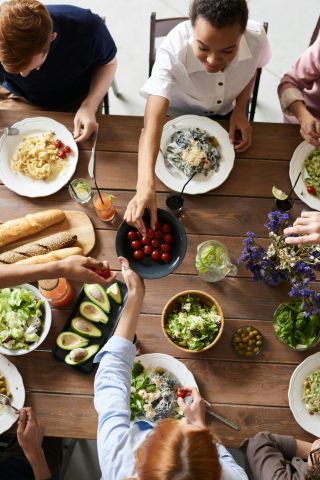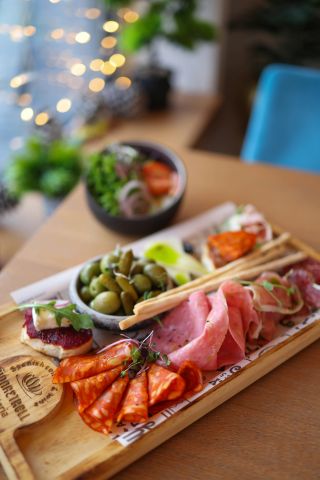Winter holidays can be particularly challenging for individuals with eating disorders due to the strong emphasis on food. Pressures to prepare and share meals, coupled with the fear of weight gain, can create a stressful environment. Additionally, the abundance of tempting holiday treats and the social cues to indulge can trigger anxiety about overeating or losing control of food.

Attending a neighborhood dish to pass or a large or celebration meal often means multiple food choices. These experiences are frequently overwhelming for someone with binge eating, compensatory purge behavior, and/or restrictive eating.
The abundance of appealing food choices, especially when available in large quantities, can be a significant challenge for individuals with eating disorders. Binge eating often occurs in secret due to shame or embarrassment about overindulging. People may avoid eating certain foods in public if they perceive them as unhealthy or high in calories, as they strive to maintain the appearance of eating healthfully. Food choices may be picked not by what might taste good and mindfully enjoyed but by what looks publicly acceptable.

For someone with a fear of weight gain and a need to compensate for eating through purging or other behaviors, consuming a “forbidden” food can trigger an anxiety-ridden mental plan for how to get rid of the food. This can create internal turmoil, even while appearing to enjoy a meal in public. In restrictive anorexia nervosa, the sight of food can trigger obsessive, fear-based thoughts about what to eat or avoid to prevent weight gain.
The abundance of food choices, the fear of being seen eating, the pressure to compare one’s body with others, the need to appear as a “normal” eater, the potential embarrassment of being seen as having a stigmatizing illness, and the anxiety of others making appearance-based comments can all be overwhelming for individuals with eating disorders. Comments from others like “Just looking at that cake makes me feel fat,” especially when referencing food at a shared meal, are particularly difficult because they trigger body image anxiety.
One helpful strategy for navigating holiday food events is to create a coping plan beforehand. This involves preparing a “toolbox” of coping mechanisms in advance. Here are some tips for those with eating disorders:
- Bring food to the event that aligns with your meal plan for a balanced diet.
- At buffets, carefully examine the available options. To avoid feeling overwhelmed and anxious about making quick choices, step away from the buffet, find a quiet space, and create a plan for what you want to put on your plate. Then, follow your plan when selecting food.
- For sit-down meals, knowing the menu in advance allows you to plan your food choices.
- Shift your focus from food to the reason for the gathering. Enjoy connecting with others.
- Evaluate if the event will be overwhelming. If so, consider not attending or leaving early. Always have the option to stay if desired.
- Eat with a supportive friend or family member who understands your eating disorder and provides encouragement.
- Seek help from a supportive friend, family member, or mentor before, during, or after the event.
- If you experience an eating disorder behavior, continue with your next planned recovery meal. Setbacks are not failures but learning opportunities.

Here are tips for carers of those with eating disorders:
- Acknowledge and support the person’s feelings about their eating disorder. Be a good listener and offer nonjudgmental support.
- Suggest activities that shift the focus away from food, such as walking together, watching a movie, or playing a game.
For individuals struggling with binge eating, compensatory purging, or restrictive eating, celebratory meals can hinder social connection and enjoyment of a balanced meal. To prioritize social connection, it’s important to manage eating disorder symptoms through planning, practicing mindful eating, seeking and receiving support from others, and self-compassion.
